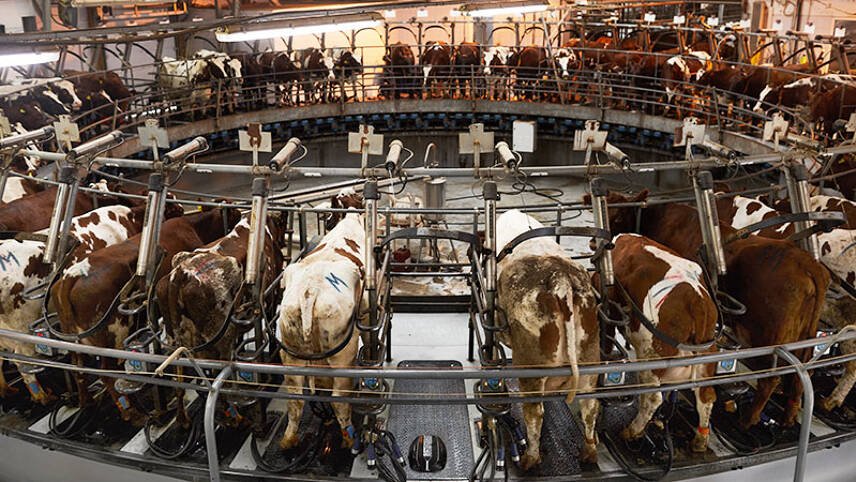Register for free and continue reading
Join our growing army of changemakers and get unlimited access to our premium content

This is despite warnings from international climate scientists that meat and dairy consumption will need to decline in wealthy countries in the coming decades if the net-zero transition is to be delivered and the worst physical impacts of the climate crisis avoided.
The findings are headlines of a new study published in the journal One Earth this month by researchers at Stanford University.
According to the researchers, livestock farmers received public funding that absolutely dwarfed the funding provided to plant-based protein and cultivated meat firms over the 2014 to 2020 period. Subsidies were 1,200 times higher for meat and dairy in the EU and 800 times higher in the US.
Funding was also far higher in both markets for R&D relating to animal proteins than to novel technologies. 97% went to animal farming and the majority went towards projects seeking to expand production and/or make production more efficient.
The researchers attributed this discrepancy to the meat and dairy industry using “gigantic political influence” to lobby to preserve or even expand historic subsidy schemes, just as climate experts are warning that they must be reduced.
At the same time, the sector has been lobbying against proportional subsidies for plant-based protein and cultivated meat. At present, these products account for 1.5-2% of the market in the EU and US – but they receive just 0.1% of central government subsidies.
The study states that “powerful vested interests exerted their political influence to maintain the system unchanged and to obstruct competition created by technological innovations”.
Intervention needed
The researchers recommend that subsidies are not only made proportional to new and novel, lower-impact proteins, but that governments make additional interventions to promote dietary shifts needed for the delivery of their binding climate and nature goals.
Livestock production currently accounts for 14-15% of annual global greenhouse gas emissions. Moreover, 75% of all forest clearance and degradation to date has been due to the clearing of land for agriculture – primarily for cattle and pigs and the soy used to feed them. Animal agriculture is also a major contributor to water issues, accounting for one-fifth of freshwater use globally.
The researchers are calling for plans to phase down animal agriculture subsidies and to set out clearer plans for R&D and innovation for alternative proteins. Ministers could lead by example by setting updated national dietary guidelines and using these to shape public sector meal procurement.
The authors of the study would like to see governments enforcing taxes that ensure the meat and dairy industry accounts for its full environmental impact, rather than externalising these impacts. It would be up to policymakers to determine which part of the bill would be footed by the sector and what costs would be placed on consumers.
Ministers could, additionally, stop allowing meat and dairy industry bodies to lobby against public information and labelling campaigns that would favour alternative proteins. The study discusses the recent furore by the industry against the labelling of vegan options as “milk”, “cheese”, “burgers” and “sausages”. The US is currently mulling over whether all products will need to be labelled as “imitation”.
It was revealed in March that animal agriculture investors had blocked the Intergovernmental Panel on Climate Change (IPCC) from making strongly-worded recommendations on shifting to plant-based diets in its climate reports.
A mixed picture
Several producers of plant-based meat alternatives have suffered in terms of popularity and/or finance this year following a boom pre-pandemic and in the early 2020s. Beyond Meat, for example, posted a 30.5% fall in sales in the quarter to 1 July 2023. The company is expecting sales to fall 9% this year despite securing the support of many major supermarkets and of McDonald’s, TGI Fridays and Carl’s Jr.
This is largely being attributed to the cost difference between these items and meat in markets including the US, EU and UK.
Another contributing factor is said to be a lack of public awareness around the nutritional information of processed plant-based foods compared with other proteins.
Not all businesses in the space are losing out, though. Dutch cultivated meat brand Meatable completed a $35m funding round earlier this summer, bringing its total amount raised to $95m. It hopes that its business model can save millions of pigs from slaughter without getting shoppers to compromise on taste or nutrition.


Please login or Register to leave a comment.